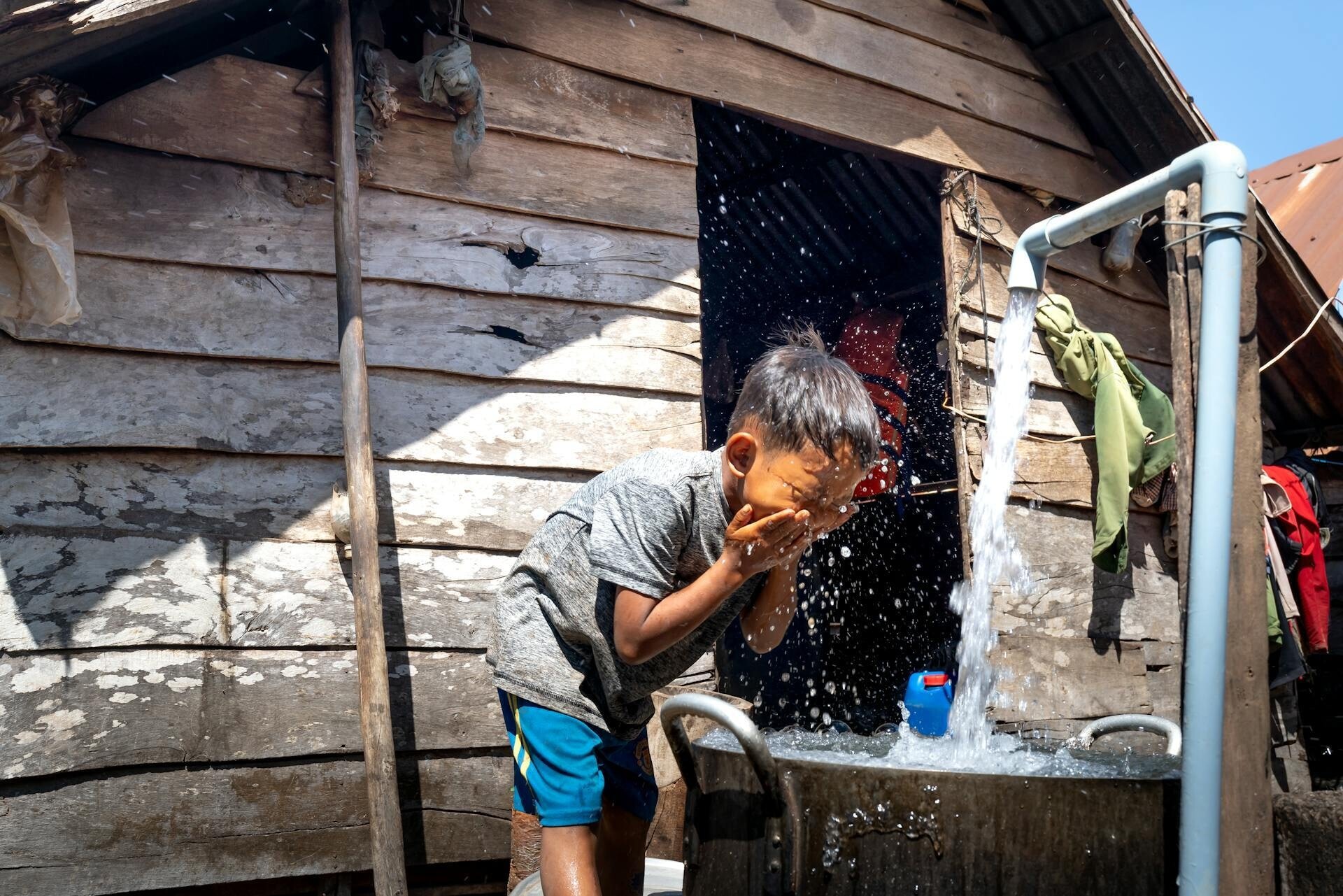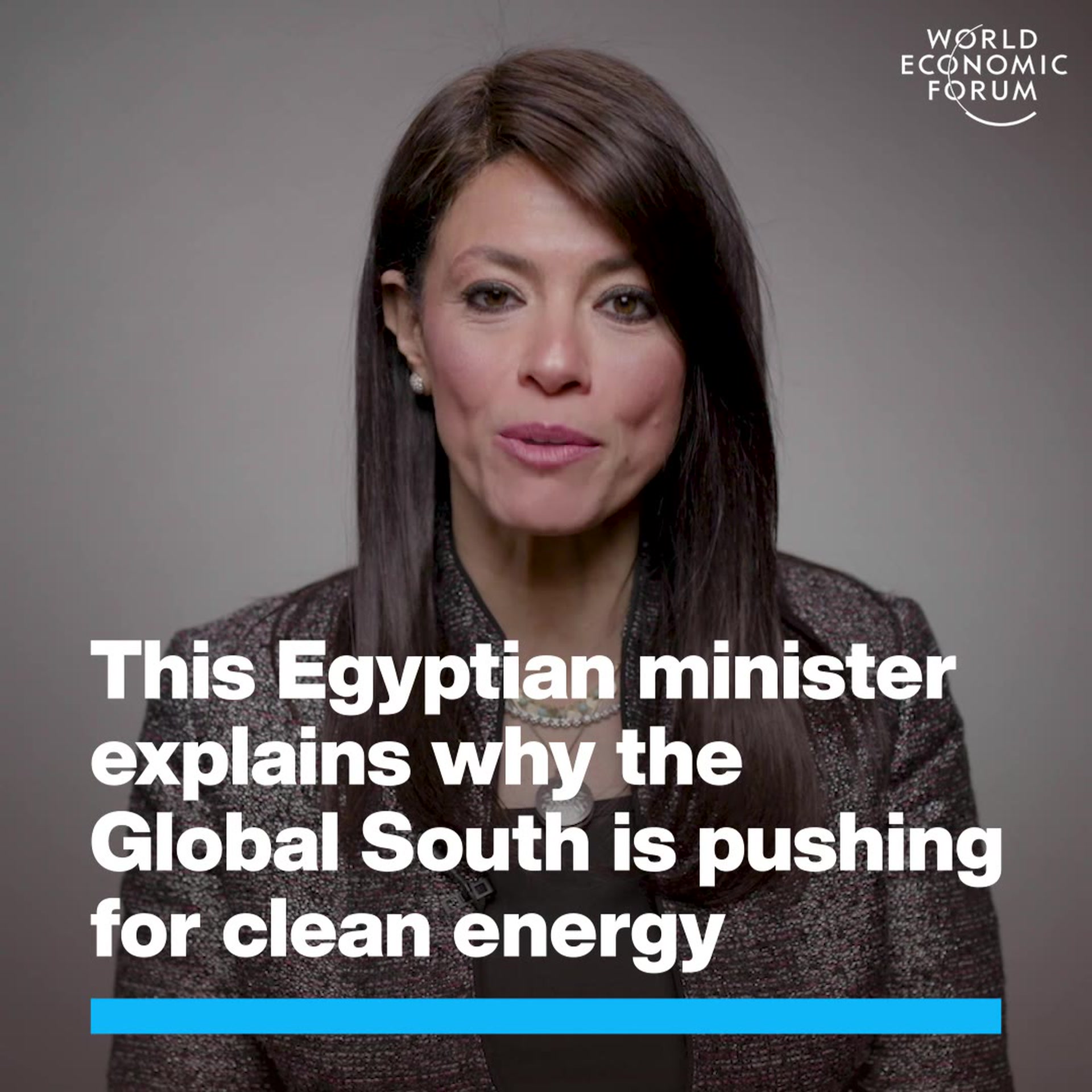Why South Asian women have a key role in tackling the climate crisis

South Asian women are vital for leading climate action in a region facing significant challenges due to the climate crisis, holding the potential to shape a sustainable future. Image: Belle Maluf/Unsplash

Get involved with our crowdsourced digital platform to deliver impact at scale
Stay up to date:
Education, Gender and Work
Listen to the article
- South Asian women are vital for leading climate action in a region facing significant challenges due to the climate crisis, holding the potential to shape a sustainable future.
- Examples from Pakistan and Bangladesh demonstrate how empowering South Asian women and integrating their perspectives can build climate resilience and achieve sustainable development.
- These are four transformative pathways that can pave the way for South Asian women to lead the charge in tackling the climate crisis head-on.
South Asia faces numerous challenges in the fight against the climate crisis. Without regional unity, the chances of fighting the battle against the climate crisis remain significantly low. Extreme heat waves, torrential rains, chronic droughts, and rapidly rising sea levels have become the norm in this divided region. The fast-changing climate has the potential to sharply diminish living conditions for a whopping 800 million residents in South Asia, who are already among the world's poorest and most vulnerable populations.
Over the past two decades, at least 750 million people in South Asia have fallen victim to climate-induced disasters, highlighting the pressing need for action and regional collaboration in the face of an increasingly volatile climate. However, the region's fragmentation hinders effective response to these challenges, placing women and children at the forefront of the crisis because of their limited access to power corridors, education, training, and financial independence.
In the battle against the climate crisis, there is an often-overlooked force of change that holds immense potential: South Asian women. Their resilience, strength, and untapped capacity have the power to shape a sustainable future for our planet.
What’s the World Economic Forum doing about climate change?

Women bear the brunt of the climate crisis but hold the key to tackling it
In the wake of climate deviations and disruptions, women continue to face a higher risk of displacement and vulnerability to climate-related risks. However, as providers, caretakers, peacekeepers, and leaders, women are playing a crucial role as front-line actors in combating the accelerating climate change.
Pakistan's Minister for Climate Change, Senator Sherry Rehman, has been instrumental in formulating the loss and damage fund facility for developing countries at COP 27 in Egypt last year. She emphasized that “Climate action and women are not niche subjects but are central to our system. For a society to transition towards climate change adaptation and resilience and also take ownership, it is the women that will make this change a reality.”
What's the World Economic Forum doing about diversity, equity and inclusion?
To pave the way for South Asian women to lead the charge in tackling the climate crisis head-on, here are four transformative pathways:
Women’s representation in key corridors
Prioritizing the active involvement and representation of women in critical decision-making arenas is crucial. By proactively increasing their presence in influential positions and key corridors, we can ensure that their voices and unique perspectives are not only heard but also seamlessly integrated into policy formulation and planning processes.
Have you read?
According to UN Women, increasing women’s representation in parliaments, and key power corridors, leads to the adoption of more robust climate change policies, resulting in a significant reduction in carbon emissions across the globe. Women's leadership is associated with increased transparency around climate impact, paving the way for the execution of constructive policies at the national and global levels.

Train women in disaster management
Training women in disaster management is crucial for building climate resilience and ensuring effective responses to climate-related emergencies. By equipping women with the necessary knowledge and skills, we can empower them to play active roles in disaster preparedness, response, and recovery.
Bangladesh’s Cyclone Preparedness Program (CPP) has trained over 40,000 women in 13 coastal districts of the country, as a disaster management training initiative. The programme has successfully invested in coastal embankments, early warning systems, and newly planted forest resources. Through these innovations, the CPP has reduced cyclone-related fatalities 100-fold and lowered the ratio of female to male deaths by almost two-thirds.
Gender responsive policy measures
Considering South Asia's vulnerability to climate impacts, gender-responsive policy measures are essential in addressing the disproportionate burdens faced by women due to gender inequalities and cultural norms. Enhancing women's participation in decision-making processes, ensuring their access to resources and technology, promoting their economic empowerment, and investing in climate-resilient infrastructure and services are crucial steps.
In South Asia, transboundary rivers like the Indus and Brahmaputra face challenges due to bilateral tensions between India and Pakistan and the absence of sharing arrangements with China. Involving women decision-makers and stakeholders ensures comprehensive, cooperative, and credible outcomes in cross-border engagements and transboundary water negotiations.
Women’s access to climate finance
Financing is the lifeblood of climate solutions. To unlock the full potential of South Asian women in tackling the climate crisis, we must facilitate their access to climate finance through targeted funding mechanisms designed to address their unique needs. This requires integrating gender-responsive perspectives, principles, and tools into all aspects of climate finance governance, procedures, processes, and operations, ensuring effectiveness and fairness.
The United Nations Development Programme recommends maximizing climate action outcomes through gender-responsive approaches in finance, directing funds to empower women in rural and community-level initiatives.
Allocate resources for collection and analysis of gender and sex-disaggregated data, enabling effective use by finance mechanisms. Additionally, to utilize national finance tools to manage and coordinate climate finance, integrating it into development plans while prioritizing gender-responsive funding that promotes inclusive, low-emission, and climate-resilient development.
Don't miss any update on this topic
Create a free account and access your personalized content collection with our latest publications and analyses.
License and Republishing
World Economic Forum articles may be republished in accordance with the Creative Commons Attribution-NonCommercial-NoDerivatives 4.0 International Public License, and in accordance with our Terms of Use.
The views expressed in this article are those of the author alone and not the World Economic Forum.
The Agenda Weekly
A weekly update of the most important issues driving the global agenda
You can unsubscribe at any time using the link in our emails. For more details, review our privacy policy.
More on Climate ActionSee all
Angeli Mehta
May 8, 2024
Sha Song
May 8, 2024
Simon Torkington
May 8, 2024
Neeshad Shafi
May 1, 2024
Johnny Wood
May 1, 2024







